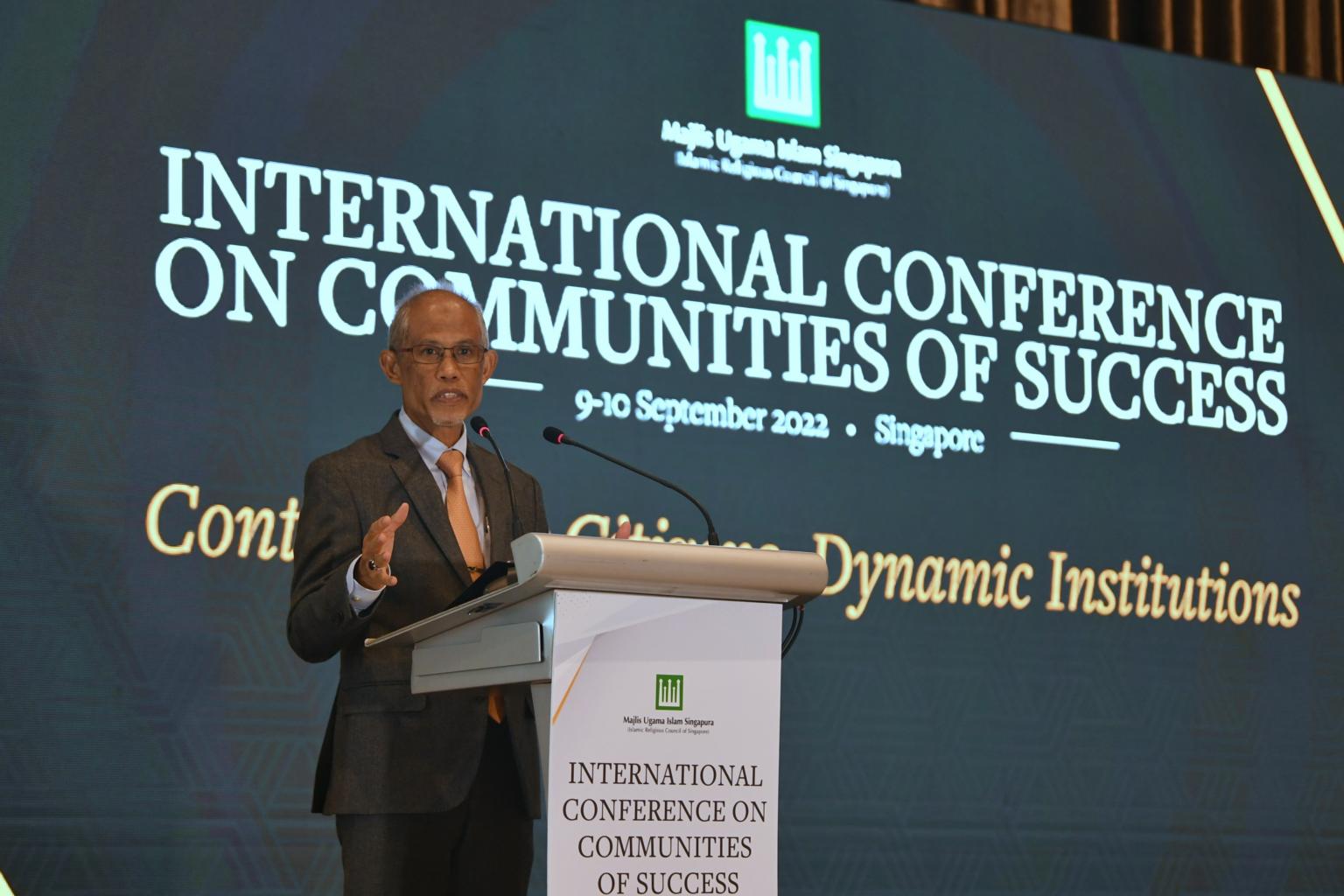Singapore to host study visits for minority Muslim communities to exchange ideas
Sign up now: Get ST's newsletters delivered to your inbox

Minister-in-charge of Muslim Affairs Masagos Zulkifli made the announcement at the International Conference on Communities of Success.
ST PHOTO: CHONG JUN LIANG
Follow topic:
SINGAPORE - A foundation started by Singapore's Muslim community will host study visits for individuals from countries where Muslims are a minority to share best practices and exchange ideas.
The Rahmatan Lil Alamin Foundation, set up in 2009, will organise the visits under the Singapore Cooperation Programme, which aims to help other countries develop human capital, Minister-in-charge of Muslim Affairs Masagos Zulkifli said on Friday.
He made the announcement at the start of the two-day International Conference on Communities of Success (ICCOS) held at Raffles City Convention Centre.
The study visits will promote mutual exchange of ideas and practices to develop successful minority Muslim communities globally and boost cooperation in this area between countries. More details will be announced later this year.
Mr Masagos said Muslims living as minorities around the world, especially in open, secular and progressive societies under the rule of law, face different considerations and challenges compared with societies where they are the majority.
"It is important for such minority Muslim communities to be able to refer to relevant guidance on how to practise their faith confidently," the minister added.
To this end, Singapore's Mufti Nazirudin Mohd Nasir urged Islamic leaders and scholars to work out the principles and values that can help their community make their own decisions when faced with their own problems.
He cited the example of how some Muslims had called Muis to ask if they could eat at particular restaurants when travelling, and said people should be educated on the meaning of food that is halal, or prepared according to Muslim law, so they are empowered to make such decisions themselves.
He also spoke about Singapore's experience during the Covid-19 pandemic, noting the religious positions taken then were unprecedented and even controversial initially, such as shutting mosques.
"We worked closely with medical experts and listened carefully to scientific insights before issuing the positions, or fatwa," he added, noting that some communities around the world mistakenly saw medical guidance as being in opposition to faith. "We needed to find ways to reconcile between science and faith: they complement, not conflict with one another."
Whether for a small but diverse nation like Singapore, or for faith communities, success hinges on the ability to adapt quickly to changing circumstances and conditions, guided by principles and values, he added. He noted that during Singapore's circuit breaker in 2020, when places of worship had to close, some worried that faith communities would lose relevance.
But if one knew where to look in scripture, there was guidance on social distancing, mask-wearing and vaccination, Dr Nazirudin said, citing a verse from the Quran: "Whoever saves a life, it is as if he has saved all humanity."
He added that faith groups here adapted and implemented safe measures for the greater good of society and to protect lives.
"Beyond that, religious leaders expressed solidarity and support for each other. Faith communities could draw strength from this togetherness at a time when anxieties were high," he said.
"Through the crisis, we have engendered greater trust and confidence in each other, and grown stronger together."

